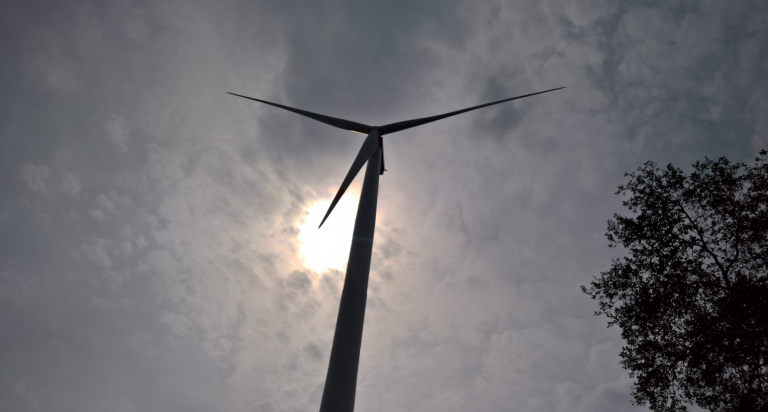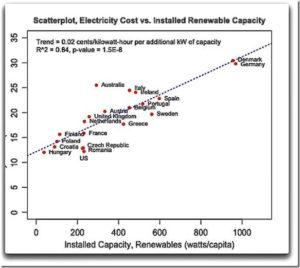by P. Gosselin, Nov 15, 2022 in NoTricksZone
Germany’s Blackout News here reports that not only is Germany’s energy supply faltering profoundly, but so is its wind industry as well, reporting that it is “sliding into a crisis”.

Gloomy outlook also for Germany’s wind energy industry. Photo by P. Gosselin
Wind energy is supposed to step in and play a key role in supplying Germany with energy as other sources get cut off. But that too is not going to plan.
“Nordex is closing its plant in Rostock, Siemens Gamesa is sliding deep into the red and at Vestas the workforce is on strike,” reports Blackout News.
…
by J. Blazquez et al., Feb 2018 in ScienceDirect
Abstract
One major avenue for policymakers to meet climate targets is by decarbonizing the power sector, one component of which is raising the share of renewable energy sources (renewables) in electricity generation.
However, promoting renewables –in liberalized power markets– creates a paradox in that successful penetration of renewables could fall victim to its own success. With the current market architecture, future deployment of renewable energy will necessarily be more costly and less scalable. Moreover, transition towards a full 100% renewable electricity sector is unattainable. Paradoxically, in order for renewable technologies to continue growing their market share, they need to co-exist with fossil fuel technologies. Ignoring these findings can slow adoption and increase the costs of deploying new renewable technologies.
This paper spots the incompatibility between electricity liberalization and renewable policy, regardless of the country, location or renewable technologies. The Paradox holds as long as market clear prices with short term marginal costs, and renewable technology’s marginal cost is close to zero and not dispatchable.
…
by Benny Peiser, February 23, 2018 in ClimateChangeDispatch
Ørsted must repair up to 2,000 wind turbine blades because the leading edge of the blades has become worn down after just a few years at sea.
Siemens Gamesa also does not want to comment on the costs, but the company’s Danish subsidiary has just provided 4.5 billion Danish Krone ($750 million) or 16% of its revenue to guarantee its commitments (…)
by NY Times, July 13, 2017 in WUWT
The level of renewable use is now so high in Germany that serious electric grid reliability and stability issues now exist which require both fossil power plant emergency backup for failed renewable production and dictate rejecting renewable energy to ensure operation of fossil plants required for electric grid reliability and stability.

La géologie, une science plus que passionnante … et diverse


